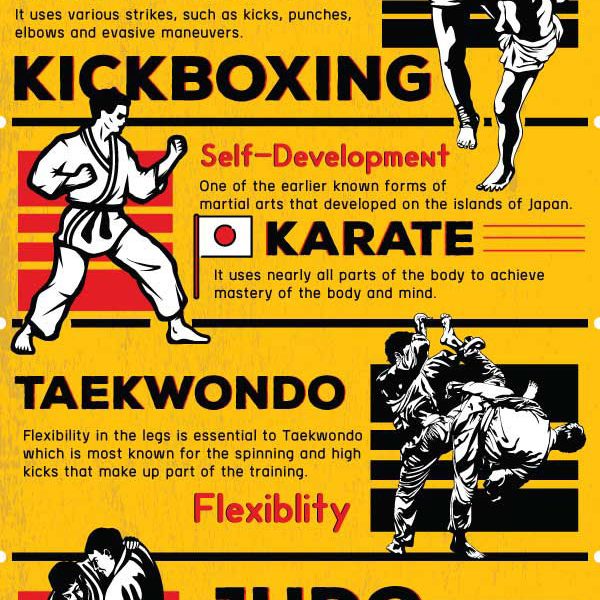The History And Philosophy Of Martial Arts: A Deep Dive
The History And Philosophy Of Martial Arts: A Deep Dive
Blog Article
Authored By-Moesgaard Barbour
Step into the old globe where martial arts were substantiated of necessity in diverse areas. Cultures crafted one-of-a-kind battling styles linked with historic contexts. Techniques advanced over centuries with devoted method and cultural exchanges. Today, contemporary martial arts mix conventional components for maximum effectiveness. Philosophically, martial arts emphasize self-control, self-improvement, and harmony. Respect, humbleness, and equilibrium are fundamental principles assisting practitioners towards growth and durability. Explore the depths of this rich background and approach to discover the profound influences shaping this long-lasting technique.
Origins of Fighting Style
Martial arts originated in various regions around the world, evolving as useful battle systems to resist hazards. These old fighting styles were developed out of need, with each society crafting methods fit to their distinct settings and obstacles. From the grappling arts of Jujutsu in Japan to the striking techniques of Martial art in China, martial arts were deeply linked with the historical, social, and social material of their particular cultures.
In Japan, the samurai class refined martial arts like Kenjutsu, the art of the sword, which later on progressed into the more promoted type of Kendo. On the other hand, in Brazil, Capoeira emerged as a mix of dance and fight, created by enslaved Africans as a method to resist oppression. Each fighting style brings with it an abundant history and philosophy, reflecting the worths and beliefs of individuals that exercised them.
As you explore the origins of martial arts, you reveal a tapestry of human resourcefulness, durability, and the unyielding spirit of warriors throughout time.
Advancement of Methods
Through centuries of practice and improvement, battle techniques within different martial arts have undergone a profound evolution. From ancient designs like Kung Fu and Martial arts to much more modern-day techniques such as Brazilian Jiu-Jitsu and Krav Maga, the evolution of strategies has actually been driven by a mix of social influences, useful applications, and technological developments.
One considerable aspect of this advancement is the cross-pollination of strategies between various martial arts. For example, strategies from conventional Japanese Jiu-Jitsu were included into the development of Judo by Jigoro Kano in the late 19th century. This mixing of styles has caused the development of hybrid martial arts like Mixed Martial Arts (MMA), which incorporate components of striking, grappling, and entry methods.
Additionally, the evolution of strategies has actually been shaped by the increasing emphasis on effectiveness and efficiency in fight. Specialists have continually sought to fine-tune their methods via rigorous training, testing, and competitors, bring about the development of highly specialized and efficient combating designs. Generally, the development of strategies in martial arts shows the vibrant nature of battle and the continuous mission for renovation and innovation.
Philosophical Foundations
Checking out the underlying thoughtful concepts of martial arts supplies understanding right into their core worths and directing ideas. At https://trevorlmicy.blogsuperapp.com/28140438/empower-yourself-discover-the-perks-of-self-defense-classes of several martial arts self-controls is the idea of technique itself. By educating your mind and body to work as one natural device, you grow technique that extends beyond the dojo or gym into daily life. This discipline incorporates respect, humbleness, and self-control, forming not simply your physical capacities yet also your character.
One more basic philosophical foundation in martial arts is the idea of continual self-improvement. The journey of mastering a martial art is relentless, with specialists regularly aiming to much better themselves, both literally and emotionally. related web site on development promotes resilience, willpower, and a growth frame of mind that can be applied to all aspects of life.
Furthermore, martial arts emphasize the value of consistency and equilibrium. Techniques are made to make use of a challenger's power versus them, highlighting the concept of producing and rerouting force instead of satisfying it head-on. This philosophy extends to social connections, advertising tranquil resolutions and mutual understanding. By embracing these philosophical foundations, martial artists not just enhance their battle skills but also grow a way of living centered on personal development, respect, and consistency.
Final thought
Finally, the history and ideology of martial arts use a rich tapestry of tradition, technique, and self-improvement.
Take for example the tale of Bruce Lee, that reinvented martial arts by mixing various designs and philosophies to develop his own distinct form of Jeet Kune Do.
With commitment and advancement, martial musicians remain to press boundaries and motivate others to reach their full possibility both in battle and in life.
